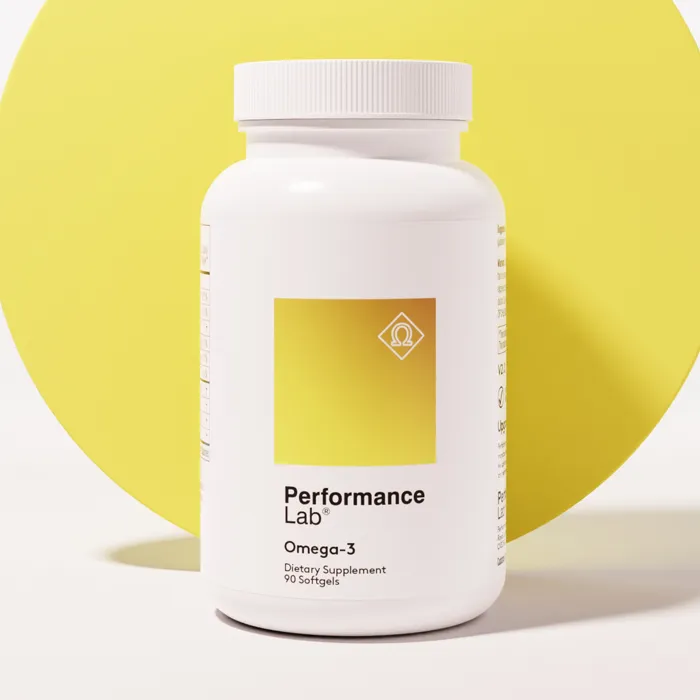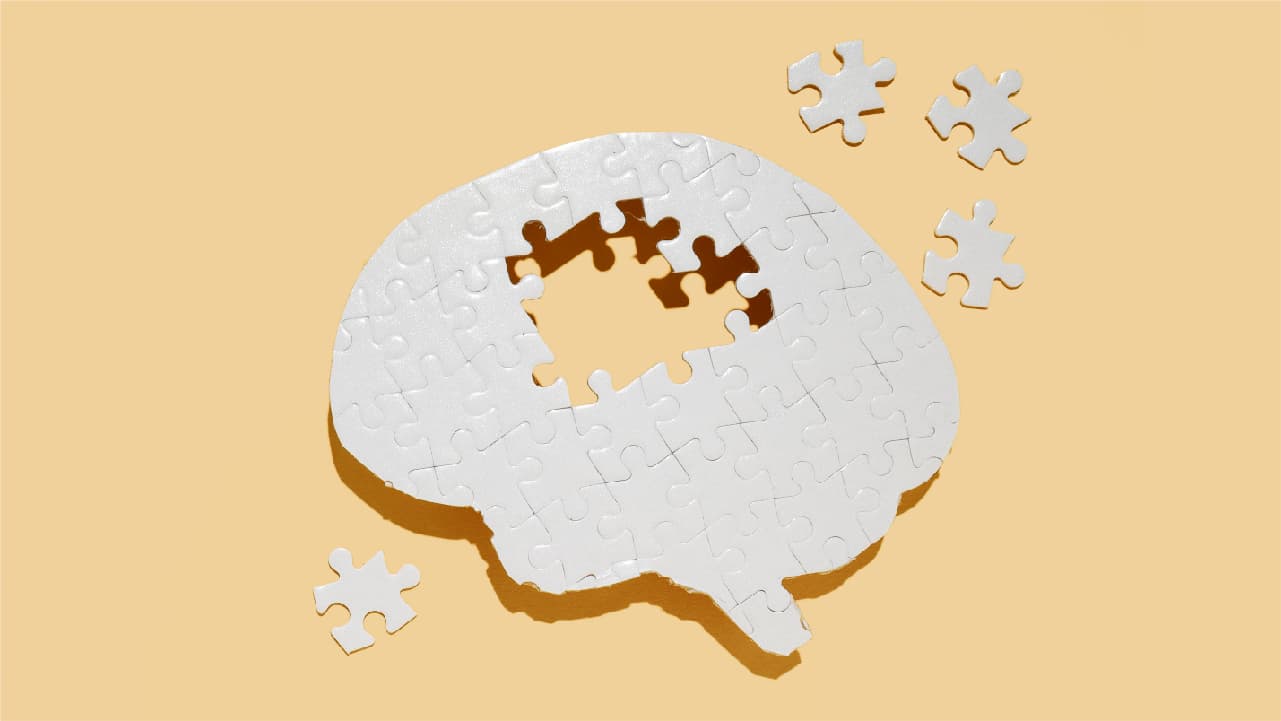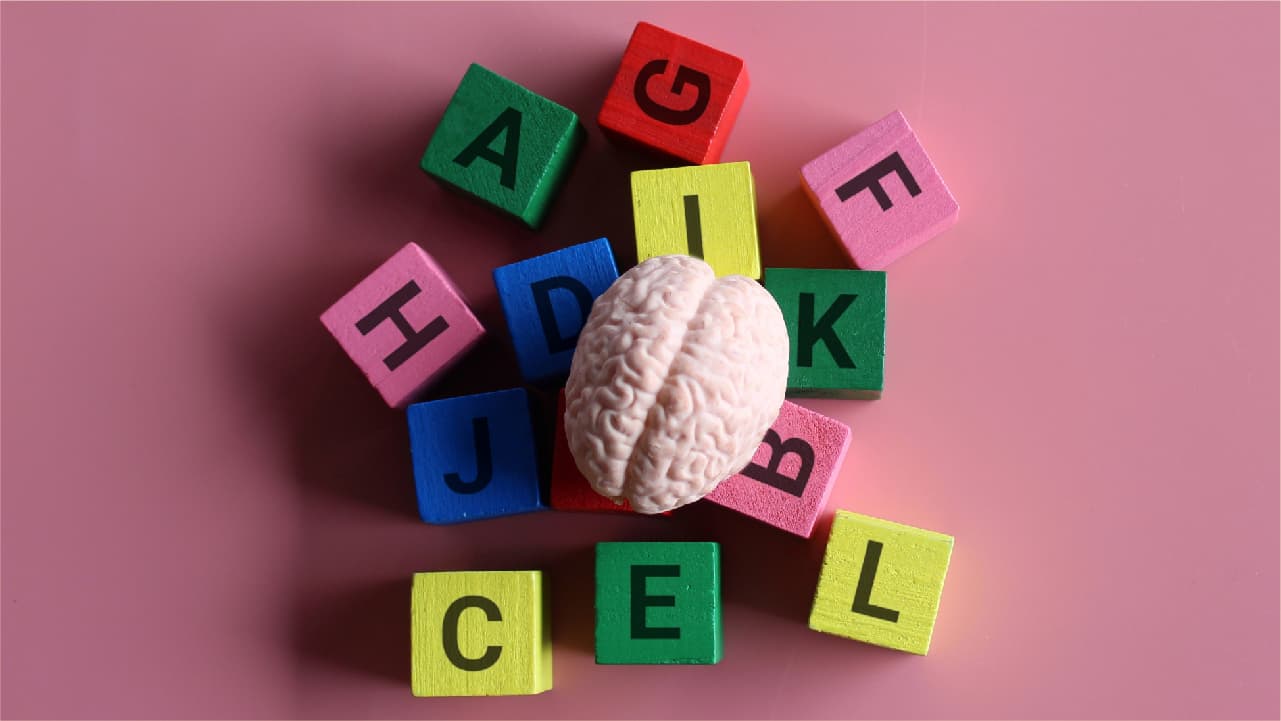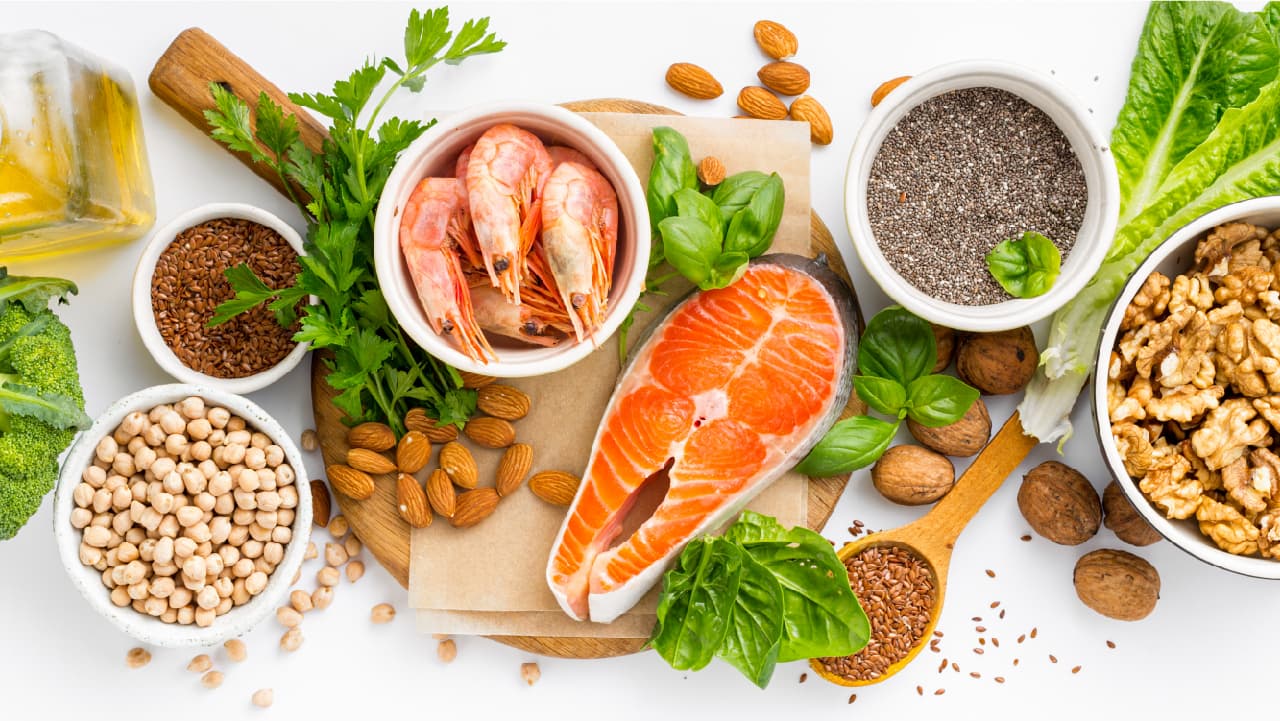Key Takeaways
- DHA is a structural omega 3 fat that makes up much of the brain’s gray matter and supports membrane flexibility, signalling, and overall cognitive function.
- Modern low-fat and highly processed diets, along with lower fish intake, can leave many people under-consuming DHA.
- Adequate DHA is linked with better memory, mood, neuroplasticity, and neurodevelopment, while also helping to modulate inflammation in the brain.
- For people who rarely eat fatty fish, algae-sourced omega 3 supplements are an effective, sustainable way to top up DHA intakes.

Everyone can relax.
Put the brain training in the bin. Tell Mensa they can close their books. Because we've done it guys.
We have hit peak intelligence.
But...before you throw your hats in the air and let off the celebratory fireworks, there's a small catch...
It would appear that our IQs are now nosediving.
This is according to a recent study led by Norwegian researcher Ole Rogeberg.
You may or may not have heard of the Flynn effect. It's a well-documented phenomenon that refers to the steady rise in average IQ scores observed throughout the 20th century.
However, this recent study reveals a new trend. Rogeberg's analysis of IQ scores among Norwegian men born from 1962 to 1991 found that scores began to decline among those born after 1975 (1). And this trend was mirrored in studies carried out in Britain, France, Finland, Denmark, Estonia, and the Netherlands.
This global pattern suggests that the long-standing Flynn effect of rising IQ scores may be plateauing and even reversing.
We're getting dafter by the decade.
And it gets worse.
According to Professor Michael Crawford, director of the Institute of Brain Chemistry and Human Nutrition, not only is our IQ dipping, but our brain size is reducing, and our mental health is on the decline. In fact he goes so far as to suggest we are heading for an "idiocracy". (2)
Which is less than ideal.
So what's going on?
There's been much debate and honestly, there's no clear data either way as to what has triggered this decline. Which means fingers are being pointed all over the place. Is it global warming? Is it the dominance of smartphones? Is it the introduction of AI and virtual assistants?
"Hey Siri, make me clever again."
According to Prof Crawford, it's down to what we eat.
He suggests this shift in IQ coincides with the step away from fats in the Western diet.
But some fats are essential to us. Particularly when it comes to brain health. And DHA, an omega-3, is one of those.
So what is DHA, why do we need it, how do we get it, and what effect does it have on us? In this piece we'll explore everything DHA.
What is DHA?

Omega-3s are those healthy, unsaturated fats that we hear a lot about. But it goes deeper than that. There are three members of the omega-3 family:
- ALA (Alpha-linolenic acid)
- DHA (Docosahexaenoic acid)
- EPA (Eicosapentaenoic acid)
While ALA is primarily found in plant-based sources like flaxseeds and walnuts, EPA and DHA are predominantly found in fatty fish, such as salmon, mackerel, and sardines.
Of these three, DHA stands out as a high achiever in the family.
Not only is it critical for the development and maintenance of brain health, but DHA also has anti-inflammatory effects that have been linked to heart health too. It's also a major structural component of our retinas. Having enough in our diet can literally help keep us focussed.
Amongst all of this, DHA plays a pivotal role in maintaining the structure of cell membranes in our brains. Think of it as the 'building material' for these membranes. It not only ensures these membranes remain robust but also allows them to stay flexible. This flexibility allows messages to pass through smoothly and is key for efficient communication between brain cells.
Our bodies can produce small amounts of DHA from other omega-3 fatty acids. But not in the quantities we need.
We need to get it from our diet.
The decline of DHA in modern diets

In the nutritional set-up of the century, in the case of Fat vs Sugar: Who's responsible for heart disease and obesity? Sugar really threw Fat under the bus. The court of public opinion found fat guilty on all counts.
Fat got canceled.
The market became awash with zero fat and low-fat products. In a bid to make them more palatable, most of them were high in refined carbohydrates. But research has shown that not only do refined carbs raise insulin, slow our metabolism, and increase blood triglyceride levels. (3) They also impair our cognitive performance (4).
The low-fat diet was a big fat lie.
This switch to supposedly 'healthy eating' that happened in the last few decades, may mean we've been cheating our brains of some of the critical nutrients that were once staples of our evolutionary diet.
But it's not just this avoidance of fat that's impacted our DHA intake. With an increase in the uptake of more plant-based diets, essential fatty acids that used to be consumed through diet, may not be getting replaced at the rate we need them to be.
DHA and brain health

Memory
DHA is a major building block of the brain, comprising about 20% of the brain's cerebral cortex. It is vital for the development of brain structure and function, particularly in the hippocampus, a region critical for memory formation and retention. Exploratory studies have indicated that older adults who consume higher levels of omega-3 fats, like EPA and DHA, tend to have better brain function and memory. (5)
Mood
In a pioneering study by King's College London, scientists uncovered how omega-3 fatty acids, particularly EPA and DHA, may help with depression (6). Using an in vitro human cell model, they simulated the neural environment of depression - in a petri dish.
Depression in a dish.
Researchers treated human hippocampal neurons with omega-3 fatty acids before inducing inflammation with cytokines. This setup allowed them to observe the protective effects of omega-3 metabolites against inflammation-induced neuronal damage, a condition commonly seen in depressive disorders. In a clinical trial, they then administered high doses of EPA and DHA to patients with depression, resulting in a significant improvement of depressive symptoms.
Epidemiological studies further support this (7), indicating that communities with diets high in omega-3s tend to experience lower rates of depression, reinforcing the connection between these fatty acids and mental health.
Plasticity
Brain plasticity, or neuroplasticity, refers to the brain's ability to change and adapt as a result of experience. DHA supports this adaptability, essential for learning new skills and forming memories. A study found that dietary supplementation with DHA not only improved spatial learning but also amplified the effects of physical exercise on synaptic plasticity and cognition (8).
Inflammation
Chronic inflammation in the brain is known to contribute to the development of several neurological disorders. DHA possesses potent anti-inflammatory properties that can reduce the production of inflammatory markers in the brain.
Evidence from clinical studies (9), indicates that regular intake of DHA-rich supplements leads to a significant reduction in inflammatory markers. This suggests that DHA supplementation could potentially exert similar anti-inflammatory effects in the brain, helping to decrease the risk or severity of inflammatory-related brain disorders.
Neurodevelopment

For infants and young children, DHA is critical for brain and eye development.
A study found that early dietary intake of DHA supports cognitive development. Infants who had DHA-enriched formula showed better problem-solving performance at 9 months of age compared to those who did not receive DHA. (10)
A systematic review and meta-analysis found that DHA supplementation was positively associated with neurodevelopmental outcomes, including hand and eye coordination in children up to 2 years old. (11)
Understanding the impact DHA has on brain health highlights the importance of incorporating DHA-rich foods into our diets.
Top food sources of DHA

Cold-water fatty fish such as salmon, mackerel, sardines, and herring are naturally rich in DHA. These sources bring the added advantage of essential protein, and a variety of other nutrients that support overall health.
But it should be pointed out, in terms of a source of DHA, those fish get their DHA from eating algae.
Algae is the primary producer of DHA in the marine ecosystem.
For those preferring a plant-based option, or those who don't like the taste of fish, there are sustainable alternatives:
Algal Oil: This is a vegan source of DHA derived directly from algae, the original source of DHA in the marine food chain. Algal oil supplements are an effective way to obtain DHA without consuming fish.
Seaweed and Algae: Some varieties of edible seaweed and algae can offer DHA, though in smaller amounts compared to fish and algal oils.
While the body can convert some ALA (alpha-linolenic acid), found in plant foods like flaxseeds, chia seeds, and walnuts, into EPA and then to DHA, this process is relatively inefficient. With only a small percentage of ALA (2-5%) being transformed into DHA.
For those not consuming fish, considering a direct source of DHA through supplements might be advisable to ensure adequate intake for brain health.
Conclusion
IQ tests aren't everything.
And Rogeberg's study probably doesn't indicate our mental ability is declining. The enormous advances we've made in science and technology over the past few decades relied on an intelligent workforce. That's us. Also, we've adapted to the world around us. Perhaps we think more creatively now? It might just be that we're getting a little worse at taking these particular types of tests.
It's not us. It's the test.
Whatever the reason, one constant remains: diet is critical when it comes to maintaining both brain and body health.
Omega-3 fatty acids, particularly DHA, are pivotal for brain health at every stage of life, from the foetal development stage to the maintenance of older adult cognitive function. If you're thinking you may not be getting enough into your daily diet, supplements are a proactive choice.
Performance Lab® Omega-3 is sourced directly from algal oil, it delivers clean, effective, sustainable DHA + EPA. Precisely dosed to rebalance your overall omega consumption. A full spectrum of essential fatty acids that not only benefit brain health, but can aid eye health, and support your cardiovascular system, for vibrant everyday health and wellbeing.

Upgrade yourself.
Shop Performance Lab Omega-3
References
- https://www.pnas.org/doi/10.1073/pnas.1718793115
- https://foodforthebrain.org/the-shrinking-brain-are-we-dumbing-down/
- https://pubmed.ncbi.nlm.nih.gov/11790961/
- https://www.sciencedirect.com/science/article/abs/pii/S0191886923000612
- https://pubmed.ncbi.nlm.nih.gov/37759879/
- https://www.nature.com/articles/s41380-021-01160-8
- https://www.ncbi.nlm.nih.gov/pmc/articles/PMC5481805/
- https://www.ncbi.nlm.nih.gov/pmc/articles/PMC3208643/
- https://www.ncbi.nlm.nih.gov/pmc/articles/PMC8066148/
- https://pubmed.ncbi.nlm.nih.gov/10755457/
- https://pubmed.ncbi.nlm.nih.gov/23364006/
- https://www.ncbi.nlm.nih.gov/pmc/articles/PMC3224740/#:~:text=Some%20estimate%20that%20only%205,EPA%20or%20DHA%20%5B6%5D.















